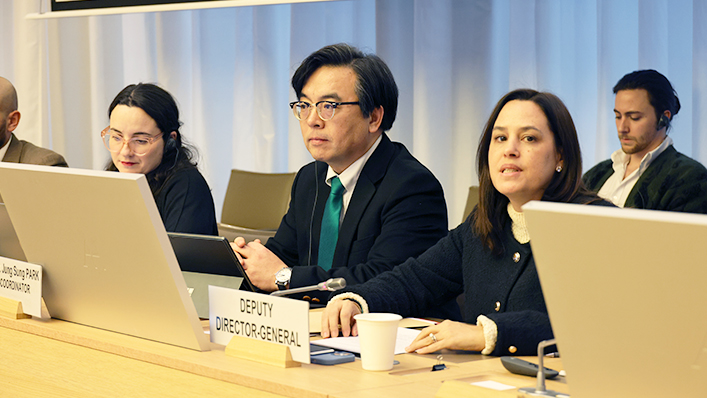
DDG Hill emphasized that IFD negotiations have been open to all WTO members wishing to participate and that after more than six years of hard work, the Agreement enjoys support from nearly 120 participating members across all regions. The majority of IFD participants are developing country members, including 23 least-developed country (LDC) members.
DDG Hill noted that unlike other more traditional WTO agreements, the IFD Agreement is not about bargaining over market access concessions. Rather, it focuses on enhancing the transparency and efficiency of investment regulations and procedures, with a view to making economies more efficient and attractive to foreign and national investors.
Highlighting that the text also contains disciplines addressing responsible business conduct and measures against corruption, she stressed that through improved transparency, accountability and governance of investment procedures, the Agreement seeks not only to attract more foreign direct investment flows but also higher-quality investment. The ultimate objective is to foster sustainable development, she said.
Against a backdrop of many crises where many developing and fiscally constrained economies are grappling with weak growth, high food and energy prices and rising poverty, DDG Hill said many IFD participants view the Agreement as an instrument to anchor and galvanize their economies.
She referred to data from the United Nations Conference on Trade and Development, which indicates that the investment gap in 2023 surged to USD 4 trillion, up from USD 2.5 trillion in 2015, at a moment when the imperative for a transition to a low-carbon economy alone calls for trillions of dollars in green investment. Meanwhile, FDI flows to developing countries experienced a 9% decline in 2023.
DDG Hill also emphasized the development aspect of the IFD Agreement, which besides setting international benchmarks on investment facilitation, also includes comprehensive special and differential treatment (S&DT) provisions. These provisions, modelled on the ones of the WTO Trade Facilitation Agreement (TFA), enable developing and LDC members to implement the IFD Agreement at their own pace. They also stipulate that assistance and support for capacity building should be provided to help developing and LDC members implement it.
Also, according to research conducted by the German Institute of Development and Sustainability, the IFD Agreement holds the potential to yield substantial global welfare gains, with the highest gains being accrued to low- and middle-income countries.
However, DDG Hill noted that achieving these benefits is contingent upon properly identifying the developing countries’ needs. She underlined the key role that needs assessment plays in assisting developing and LDC members in identifying and assessing their technical assistance and capacity building needs and priorities. She encouraged participants in the IFD initiative, particularly donors, to contribute to these needs assessments.
Share
Reach us to explore global export and import deals